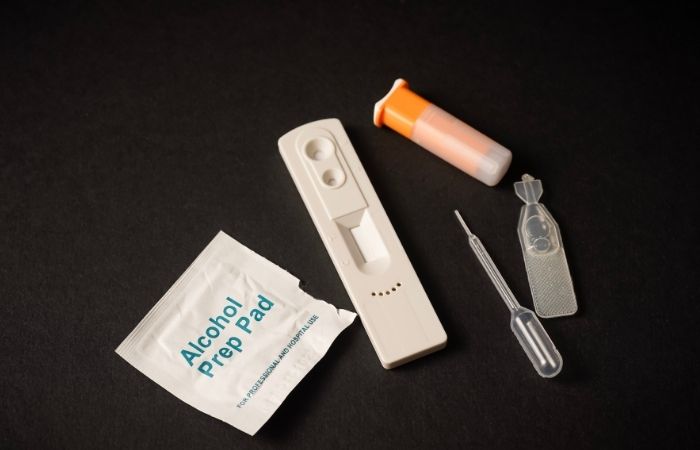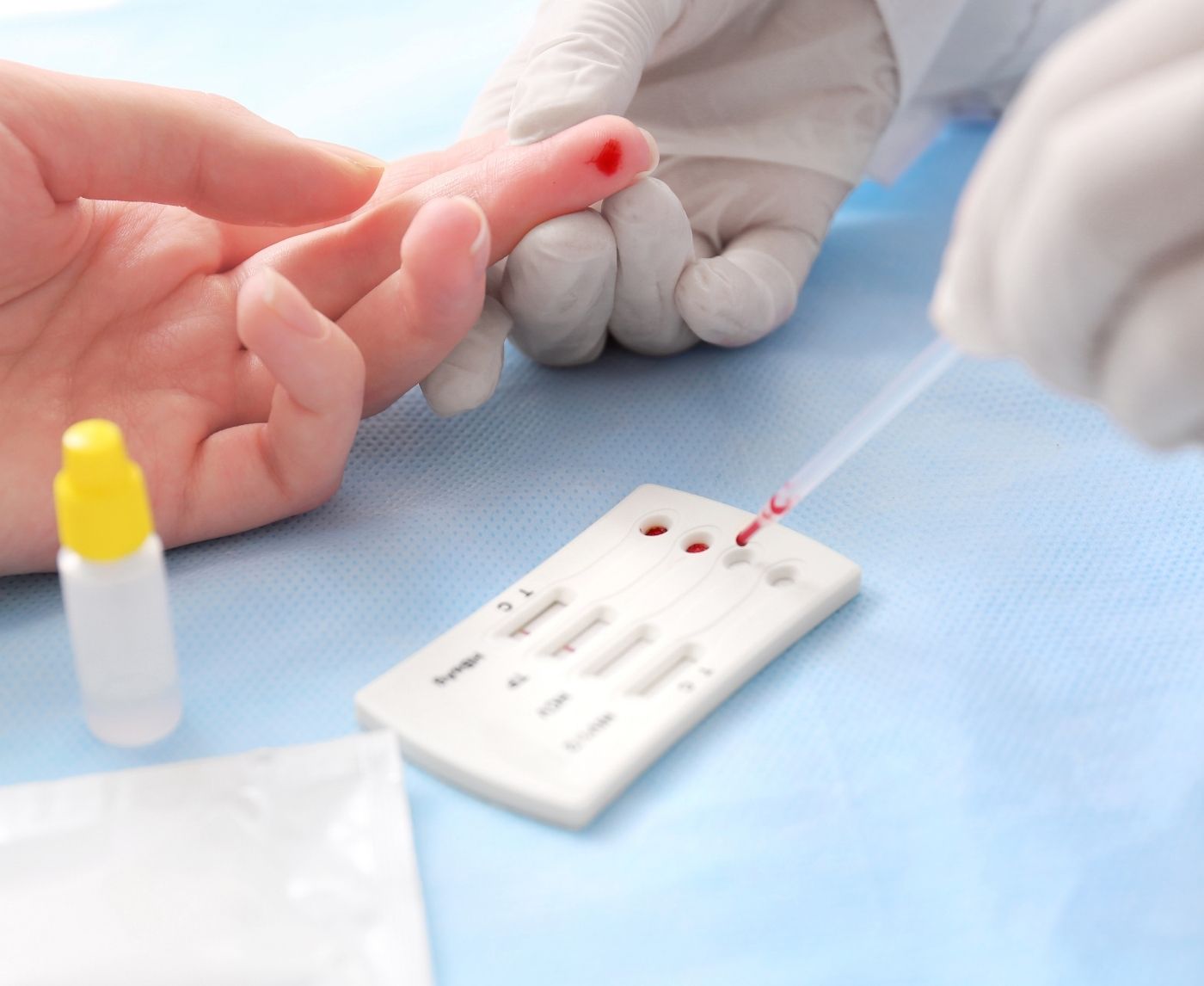Tested Too Soon for HIV? Here’s What That Negative Could Mean
Quick Answer: STD testing before marriage identifies silent infections like chlamydia, gonorrhea, syphilis, HIV, and herpes, many of which show no symptoms. Testing together builds trust, prevents transmission, and ensures peace of mind before intimacy on the honeymoon.
“But We’re Engaged, We’re Safe”: When Assumptions Collide with Symptoms
This isn’t about fearmongering. It’s about truth. Around the world, nearly half of new sexually transmitted infections occur in people under 30, and studies show that up to 70% of chlamydia cases and 50% of gonorrhea cases are completely asymptomatic at diagnosis. That means couples walking down the aisle every weekend may have no idea what’s present in their bodies, waiting until the honeymoon to surface with burning, itching, or worse, with nothing at all but long-term consequences like infertility. Love doesn’t cancel out biology.
The most common line I hear when couples skip testing is simple: “We trust each other.” Trust matters, but so does biology’s refusal to play by social rules. Infections don’t care about wedding dates. One partner may have had a single encounter years ago, shrugged off a rash, assumed it was shaving irritation. The other may have once relied on condoms, forgetting that herpes and HPV transmit from skin-to-skin contact that latex can’t fully cover. On the honeymoon, what looks like heat rash or friction burn after sex can actually be an outbreak, and couples fight not because of betrayal, but because they never had the conversation.
Here’s the kicker: symptoms aren’t reliable. Syphilis can begin with one painless sore that disappears. HIV can hide for years before detectable by routine labs, which is why window periods matter. Trichomonas often shows up as vague irritation, or nothing at all. Waiting until “something looks wrong” is like waiting until your car engine seizes before you check the oil. The silence of these infections is exactly why premarital testing is more than paranoia. It’s preventative care dressed in honesty.

People are also reading: First Time Getting an STD Test? Here’s Exactly What to Expect
The Honeymoon Rash Panic
Picture this: two days into a beach honeymoon, sunburned, tipsy, and in love, one partner notices tiny bumps along the bikini line. “It’s probably razor burn,” they laugh, but later, after Googling under the sheets, the words “herpes outbreak” fill the screen. Panic spirals. Was it waxing? Was it past exposure? Do we need to find a clinic in a foreign country? That spiral could have been avoided with a ten-minute swab weeks earlier.
Data backs this up: studies in the Journal of the American Medical Association have linked viral outbreaks to skin trauma like waxing, but the trigger is exposure itself, not the act of shaving or waxing alone. Without knowing status, couples confuse everyday irritation with infection, and fear corrodes joy faster than anything.
Testing before the wedding isn’t just about medical facts, it’s about protecting moments like this from unraveling into mistrust. The stress of wondering can do more damage than any actual diagnosis.
The Silence Before “I Do”: Why Couples Dodge the Test
Marcus told me once that talking about testing with his fiancée felt scarier than talking about money or kids.
“It’s like admitting you’ve been with other people, even if it was years ago,” he said. “What if she thinks I’m dirty? What if she cancels the wedding?”
That fear isn’t unusual. Stigma has built a wall around STD testing, turning a health decision into a test of loyalty. But here’s the truth: infection risk doesn’t disappear because someone is in love. A person can carry HPV for years with no symptoms. A dormant herpes infection can suddenly flare after stress. The body’s memory doesn’t reset when you propose, it carries everything forward.
Research echoes what Marcus feared. A 2024 meta-analysis showed that more than half of people with an STI delayed or avoided testing because they worried about judgment from their partners. That delay translates into spread, and it isn’t malice, it’s silence. The wedding industry rarely talks about testing, focusing instead on glowing skin and toned abs. But the truth is, the most intimate gift couples can give each other before marriage is clarity, not curated photos.
Myth One: “If I Don’t Have Symptoms, I’m Fine”
This is the biggest myth of all. According to the CDC, up to 80% of women and 50% of men with chlamydia never notice a single symptom. Gonorrhea often hides in the throat or rectum, showing nothing but slight irritation at best. HIV in its acute stage can mimic the flu, fever, sore throat, fatigue, then vanish into years of silence. By the time symptoms appear, damage may already be underway. That’s why routine testing isn’t about suspicion. It’s about outsmarting silence.
In weddings, couples plan for hidden costs, service fees, taxes, last-minute floral markups. But too many fail to budget for hidden infections. The same logic applies: better to know before you sign the contract than to be surprised after. The absence of symptoms is not the presence of safety.
Myth Two: “Condoms Covered Us”
Condoms work. They’re essential, reducing the risk of HIV, chlamydia, and gonorrhea transmission dramatically. But they don’t cover skin beyond their barrier. That means herpes, HPV, and even syphilis can still spread during oral or genital contact. Studies published in the journal Sexually Transmitted Diseases confirm that couples who relied solely on condoms still showed significant rates of HPV transmission. Condoms are powerful, but they are not a guarantee, and when it comes to preparing for marriage, couples deserve more than “probably safe.”
Think of it like wedding insurance. You wouldn’t insure half the venue and ignore the rest. Testing fills the gaps that protection alone cannot cover. And when testing is done together, it’s no longer a suspicion, it’s a shared ritual, just like ring shopping or food tasting.
Myth Three: “Testing Means I Don’t Trust You”
This one cuts the deepest. In reality, testing is the opposite of mistrust. It’s proof of care. When Sara asked her fiancé to test with her before their destination wedding, he recoiled at first, hurt by the implication. But later, sitting in the waiting room, he admitted: “This feels like we’re protecting each other, not doubting each other.” The test results weren’t dramatic, they were both negative. But the act itself became a memory they carried, proof that honesty mattered more than assumption.
The way you frame things is important. Instead of saying, "I need to know if you're clean," a better way to say it is, "I want us both to be safe and sure before our wedding night." Language changes the conversation from blaming to working together. Data corroborates this: couples who perceived testing as a collective responsibility reported increased relationship satisfaction and diminished sexual anxiety following marriage, as indicated by a 2023 study published in the Journal of Sex Research.
Turning Testing Into Intimacy: A Sex-Positive Shift
The truth is, testing doesn’t have to feel like a courtroom interrogation. It can be woven into the fabric of intimacy itself. I once spoke with Luis and Camila, who turned their premarital check-up into a date. They scheduled back-to-back appointments, picked up takeout, and toasted to their results with champagne in paper cups.
“It wasn’t about fear,” Camila said. “It was like saying, we’re stepping into this marriage with nothing hidden.”
By making it playful, even celebratory, they turned what could have been awkward into an act of closeness.
Testing is not the end of romance, it’s an extension of it. Couples who test together often report feeling more sexually free afterwards. No more quiet doubts, no more pulling away mid-kiss wondering about past partners. Sex positivity is about removing barriers, and in this case, silence is the biggest barrier of all.

People are also reading: Can You Get HIV from Oral Sex? What the Science Really Says
When to Test: The Science of Window Periods
Timing matters. HIV antibody tests may not detect infection until three months post-exposure, while fourth-generation HIV tests can detect infection in as little as 18–45 days. Chlamydia and gonorrhea usually show up on tests within one to two weeks, but rare cases may take longer. Syphilis tests can be accurate after three weeks, though confirmatory testing may be repeated if risk persists. This isn’t trivia, it’s the reason premarital testing should be done early enough that results are reliable, not in a rushed panic days before the ceremony.
Couples should ideally test at least two months before the wedding, leaving time for any follow-up or treatment. That way, if a surprise positive comes back, treatment can be completed and intimacy fully restored before vows are exchanged. It also means less stress when the honeymoon suitcase is packed, you’re packing condoms and sunscreen, not test anxiety.
Prevention Beyond the Test: Vaccines and Protection
Testing is crucial, but it’s not the whole story. The HPV vaccine can prevent strains that cause genital warts and cervical cancer, and it’s recommended up to age 45 in many cases. Couples who vaccinate before marriage reduce not only personal risk but the shared risk of transmission. Similarly, Hepatitis B vaccination is a cornerstone of sexual health but often overlooked in premarital care. And let’s not forget PrEP, a daily pill that can prevent HIV if one partner is at higher risk, sex workers, men who have sex with men, or anyone with a known positive partner.
This isn’t about expecting the worst. It’s about building safety nets into the marriage so that sex remains joyful, spontaneous, and worry-free. Couples plan honeymoons with insurance, passports, and back-up chargers. Why should sexual health be any less prepared?
At-Home Testing: Privacy Meets Clarity
For many, the hardest part isn’t the needle or the swab, it’s walking into a clinic where someone might recognize you. That’s where at-home testing becomes a bridge. FDA-approved kits let couples collect samples discreetly, ship them off, and get results online. Some kits, like the combo STD home test kit, check for multiple infections at once, cutting down the uncertainty of “what if we missed something.” Results are confidential, and privacy means couples can take control without fear of stigma.
The best thing about these kits is how quickly they work. Couples can test now, together, and add the results to their pre-wedding plans instead of waiting weeks for clinic slots. It changes testing from something that gets in the way to something that everyone can do together. Imagine putting results in the wedding binder next to contracts with vendors. This is a quiet but powerful way to get ready.

People are also reading: Paid Sex, Real Panic: Do I Need to Get Tested?
FAQs
1. Do both of us really need to get tested before the wedding?
Yes, both of you. Think of it like dance practice, you can’t just rehearse with one partner and expect the performance to go smoothly. Even if one of you feels “low risk,” getting tested together means no assumptions, no hidden chapters, just clean pages before you start writing the marriage story.
2. How far in advance should we test?
The sweet spot is about two months before the big day. That gives enough time to catch anything silent, finish treatment if needed, and even re-test if doctors suggest it. Think of it as booking your venue, you wouldn’t wait until the week before, right?
3. What if I’ve never had symptoms?
That’s actually the trick: most people don’t. Chlamydia and gonorrhea love to hide, and half of those who test positive say they felt nothing. Waiting until something hurts is like waiting for your car to break down on the freeway. Testing is your routine oil change.
4. Are condoms 100% effective?
They help, hugely, but not completely. Condoms are fantastic against HIV and most bacterial STDs, but they don’t shield the skin around them. That means things like HPV and herpes can still slip through. Imagine wearing a raincoat with your ankles exposed, you’ll still get wet if the puddle is big enough.
5. What if my partner refuses testing?
That’s a tough one. Sometimes it’s not about refusal, it’s about fear, fear of what the test might say, fear of looking guilty. A softer script helps: “I want us to start our marriage with full peace of mind. Let’s do this together.” If pushback continues, it’s worth asking: why would someone resist a simple act of protection?
6. Can waxing or shaving cause herpes?
Not exactly. Waxing doesn’t create herpes out of nowhere, but if someone already carries the virus, skin trauma can trigger an outbreak. So if a bump pops up right after your wax, don’t panic, it might just be irritation. Testing sorts out the guesswork.
7. Should we bother with vaccines?
Absolutely. The HPV vaccine and Hepatitis B vaccine are like prenups for your health, they protect you against risks you don’t even know are coming. And yes, you can get them in adulthood. It’s not too late.
8. Are at-home test kits legit?
The good ones are. FDA-approved kits use the same labs your clinic would, and they spare you the waiting room stares. Couples tell me they’ve made testing a quiet ritual, ordering a kit, making tea, sealing samples together like it’s a wedding invitation. Results are just as accurate, only more private.
9. Can wedding stress trigger outbreaks?
Definitely. Stress weakens your immune system, and herpes loves to take advantage. It’s why some people notice their first outbreak during finals week, or yes, right before the big day. Testing won’t stop stress, but it will stop the guessing game about what’s really happening.
10. What if results aren’t what we expect?
Then you breathe, you treat, and you move forward. Most STDs are curable. The ones that aren’t, like herpes or HIV, are manageable with today’s medicine. A diagnosis doesn’t cancel love. It just asks for honesty and care, which are what marriage is supposed to be about anyway.
Don't Wait. Get Answers
Love should be celebrated as much as it should be honest. Testing before the wedding isn't about being scared; it's about being clear, healthy, and at peace with your vows. One simple test now means one less worry later, so you can enjoy your honeymoon without having to guess.
Sources
1. CDC – HIV Testing and Window Periods
3. Planned Parenthood – How Do I Talk With My Partner About STD Testing?
4. Marriage.com – How to Ask a Partner About STDs: 7 Polite Ways
5. Health.gov – STI Testing: Conversation Starters
6. Hackensack Meridian Health – How to Talk to Your Partner About STD Testing






